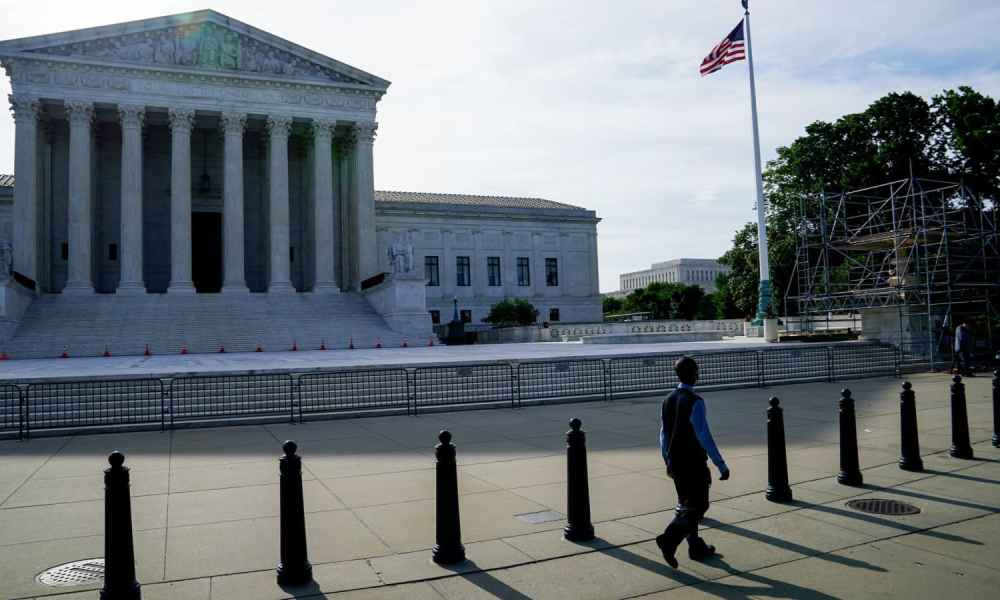Accountability
Supreme Court declines to block Texas Heartbeat Act, will instead hear arguments on whether DOJ can sue the state

The Supreme Court on Friday refused again to block Texas’s Heartbeat Act that makes it illegal for doctors to end a pregnancy after a fetal heartbeat has been detected. Instead, the justices said they will hear arguments next month on whether the Justice Department has standing to sue Texas over the law.
Abortion advocates had asked the court to put the Texas law on hold as constitutional and procedural issues were weighed. Instead, the court, over a dissent by Justice Sonia Sotomayor, allowed the law to remain in effect. The justices said they would weigh only the procedural issues, not the question of whether the Texas law is constitutional. The Biden administration had argued the Texas was using a private bounty scheme to deny women their constitutional rights.
The Texas Heartbeat Act, known also as Senate Bill 8, authorizes private lawsuits against doctors who perform abortions after a fetal heartbeat can be detected, at about six weeks. The Texas statute empowers private citizens, rather than the government, to enforce the ban on abortion and bring lawsuits against health providers or anyone who assists someone in obtaining an abortion.
This is the second time the court has refused to block the Texas law. On Sept. 1, the majority by a 5-4 vote allowed the Texas law to take effect, saying the case “presents complex and novel … procedural questions” [New York Times].
Chief Justice John Roberts joined the court’s three liberals in publicly declaring that the court was erring by refusing to grant the emergency motion to stay the Texas law. In a highly unusual move for a case on the court’s so-called shadow docket, all four dissenters authored opinions that lamented the court’s decision. “The Court’s order is stunning,” Justice Sonia Sotomayor wrote.
“Presented with an application to enjoin a flagrantly unconstitutional law engineered to prohibit women from exercising their constitutional rights and evade judicial scrutiny, a majority of Justices have opted to bury their heads in the sand. … The Court’s failure to act rewards tactics designed to avoid judicial review and inflicts significant harm on the applicants and on women seeking abortions in Texas” [Yahoo News].
Terry A. Hurlbut has been a student of politics, philosophy, and science for more than 35 years. He is a graduate of Yale College and has served as a physician-level laboratory administrator in a 250-bed community hospital. He also is a serious student of the Bible, is conversant in its two primary original languages, and has followed the creation-science movement closely since 1993.
-

 Accountability2 days ago
Accountability2 days agoWaste of the Day: Principal Bought Lobster with School Funds
-

 Constitution2 days ago
Constitution2 days agoTrump, Canada, and the Constitutional Problem Beneath the Bridge
-

 Executive17 hours ago
Executive17 hours agoHow Relaxed COVID-Era Rules Fueled Minnesota’s Biggest Scam
-

 Civilization16 hours ago
Civilization16 hours agoThe End of Purple States and Competitive Districts
-

 Civilization4 days ago
Civilization4 days agoThe devil is in the details
-

 Executive4 days ago
Executive4 days agoTwo New Books Bash Covid Failures
-

 Civilization3 days ago
Civilization3 days agoThe Conundrum of President Donald J. Trump
-

 Executive4 days ago
Executive4 days agoThe Israeli Lesson Democrats Ignore at Their Peril



[…] The Court effectively replied, […]
[…] In that month the Texas Heartbeat Act took force and effect. The U.S. Supreme Court turned back several challenges, saying in effect, “Call us when you have an actual […]